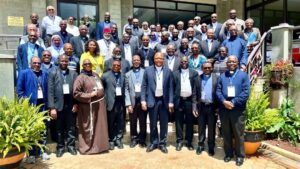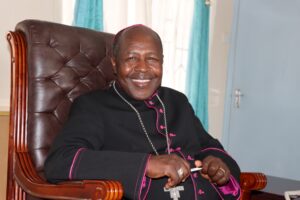KENYA: Health and Nutrition Issues in Africa: Separating Facts from Myths

Health issues have been on the rise in Africa especially on the non-communicable diseases which are so myriad yet some of which are preventable.
Speaking during a one day conference held on 23rd, June, 2017 at Daystar University-Nairobi, the keynote speaker and Chancellor in the same University Prof. Mary Murimi said people tend to believe so much in Myths more than Facts when it comes to nutrition issues a trend that impacts negatively on their health.
Murimi who is also a Professor of Nutrition in the college of Human Sciences at Texas Tech University noted that, myth is marketed with a lot of passion and one is not required to make sacrifice in anything since it promises immediate results and people give their testimonies about what they believe unlike in science where the marketing is a bit cold and people don’t give testimonies for others to believe in them. “People act so fast on myths more than facts.” She said
Speaking during the same conference, an Associate Professor at the Center for Alaska Native Health Research at the University Fairbanks Dr. Andrea Benjamin said that, there are several causes of death in developing counties which come about as a result of poor nutrition and the type of lifestyle that people live.
Benjamin encouraged Africans to eat more of traditional diet which are rich in high fibre, and are nutrient dense saying that, people should eat plenty of fruits and vegetables, more of whole grains, use oils instead of solid fats, modest lean meat and protein sources, limit foods high in added sugar and fats, manage the amount of carbohydrates and take plenty of water to be physically active.
The conference which was convened by Daystar University under the liaison of Sr. Prof. Agnes Lucy Lando, attracted over 200 participants from different sectors, 5 guest speakers, 6 panellists and a keynote speaker. The participants were encouraged to create awareness on healthy living in order to reduce the rate of contracting diseases.
∽End∽
By Sr. Antoinette Jecinter Okoth, FSSA


